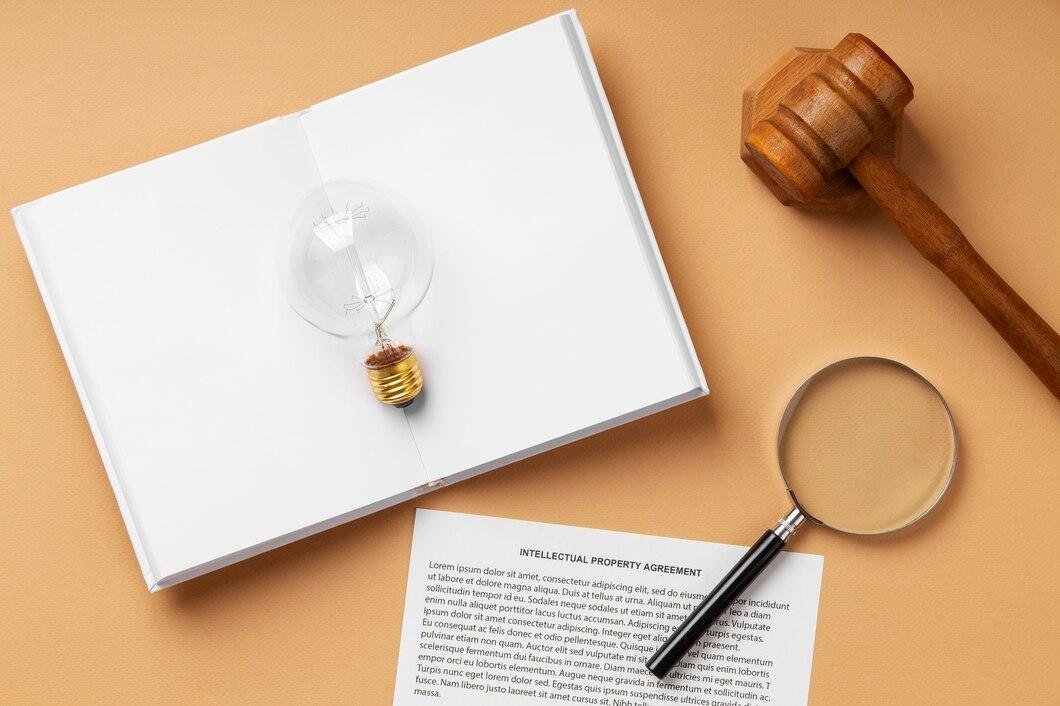
What are the Copyright Laws in India?
Understanding and defending intellectual property has become more important than ever in a time when creativity and innovation propel economic success. Copyright laws in India serve two important functions: protecting the rights of creators and promoting an atmosphere favourable to artistic and literary expression.
In this guide, let’s explore the nuances of copyright laws in India, addressing important issues and offering insightful information to the public, corporations, and creators alike.
Understanding the Copyright Laws in India
The Copyright Act, of 1957, which has undergone several amendments to stay up with international treaties and technical improvements, largely governs copyright rules in India. These laws apply to original works of literature, drama, music, and art, as well as sound recordings and cinematography.
Key Aspects of Indian Copyright Law
1. Automatic Protection
In India, copyright protection is granted automatically as soon as an original work is expressed in a tangible form. There is no need to apply for copyright for the protection to begin, unlike trademarks or patents. This aligns with the Berne Convention, which India is a party to.
2. Duration of Copyright
The duration of copyright protection varies depending on the work. For literary, dramatic, musical, and artistic works, protection lasts for the author’s lifetime plus 60 years, as per Section 22 of the Act. For cinematograph films, sound recordings, photographs, and government works, the duration is 60 years from the date of publication.
3. Types of Protected Works
The Copyright Act protects various forms of creative works:
- Literary works, including computer programs
- Dramatic and musical works
- Artistic works
- Cinematograph films
- Sound recordings
4. Moral Rights
The moral rights of an author are protected under Indian law. Authors have the right to:
- Claim authorship of their work.
- Object to any distortion or mutilation of their work that could harm their reputation or honour (Section 57).
5. Fair Use Provisions
Indian law allows for fair dealing exceptions, where limited use of copyrighted material without permission is allowed, especially for:
- Research, private study
- Criticism or review
- Reporting current events
This is narrower than the fair use doctrine seen in U.S. law, but it still provides flexibility for educational and journalistic purposes.
Is Copyright Registration Mandatory?
While copyright registration is not mandatory in India (Section 44 of the Act), it is highly recommended due to the additional benefits it provides.
Advantages of Copyright Registration
- Prima Facie Evidence: In case of disputes, a registered copyright serves as initial proof of ownership in court (Section 48).
- Public Record: Registration creates a formal record that can be referenced for licensing and permissions.
- Legal Remedies: Registered works offer access to statutory damages and attorney’s fees in the event of infringement, which may not be available for unregistered works.
What Happens If Copyright Isn’t Registered?
Even without registration, the creator retains the copyright. However, without registration, certain challenges may arise:
- Burden of Proof: The copyright owner may need to provide extensive documentation to prove authorship and ownership in cases of infringement.
- Limited Remedies: Statutory damages and legal fees are only available for registered works.
- Enforcement Challenges: Enforcement of rights may take longer and involve more legal steps if the work is not registered.
How Much Does Copyright Registration Cost in India?
The costs for copyright registration in India are as follows (based on recent data from 2024):
- Literary, musical, or artistic works: ₹500 for individuals, ₹2,000 for groups.
- Cinematograph films: ₹5,000.
- Sound recordings: ₹2,000.
These fees are updated periodically, and it is recommended that you check the Copyright Office website for the latest figures.
Steps to Register a Copyright in India
The registration process involves the following steps:
1. Prepare the Application: Complete Form XIV, detailing the applicant’s and author’s names and the type of work.
2. Gather Documents: Include:
- Copies of the work (published/unpublished as per requirement).
- Identity proof.
- Power of Attorney (if applicable).
3. Pay the Registration Fee: The fee depends on the type of work.
4. Submit the Application: This can be done in person at the Copyright Office in New Delhi or through the e-filing portal.
5. Review: The Copyright Office will examine the application, and if any issues arise, the applicant will be notified.
6. Registration Certificate: Upon approval, the applicant receives a registration certificate.
Copyright Infringement and Remedies
The Copyright Act provides several remedies for infringement:
- Civil Remedies: These include injunctions, damages, and profit-sharing.
- Criminal Remedies: Infringement can lead to fines and/or imprisonment.
- John Doe Orders: Courts can issue John Doe orders to prevent access to pirated content in cases of widespread infringement.
- Border Control Measures: Customs can block the import of pirated goods into India.
Digital Copyright in the Internet Era
The digital landscape has introduced new challenges for copyright enforcement:
- Online Infringement: Laws have been updated to recognize and address online copyright infringement.
- Internet Service Providers (ISP) Liability: ISPs must act on take-down notices for copyrighted content or risk liability.
- Digital Rights Management (DRM) Protection: Circumventing DRM measures is prohibited under Indian law.
International Copyright Protection
India is a signatory to several international copyright treaties, ensuring that works created by Indian authors receive protection globally:
- Berne Convention
- Universal Copyright Convention
- TRIPS Agreement (Trade-Related Aspects of Intellectual Property Rights)
These agreements guarantee reciprocal protection for Indian works in other member countries.
Conclusion
As the digital and creative landscapes evolve, it’s crucial for creators to stay informed about copyright laws and changes. Understanding your rights under Indian copyright law and taking proactive steps—such as registering your work—can help you protect and capitalize on your intellectual property.
Knowledge is power in the world of intellectual property. By staying up-to-date with legal developments, you can safeguard your creations and contribute to the rich cultural and intellectual heritage of India.
For expert legal assistance on copyright matters and protecting your intellectual property, connect with Innerwork Advisors LLP, the best legal firm in Kolkata. Their experienced team can guide you through the complexities of copyright law and ensure your creations are well protected.






